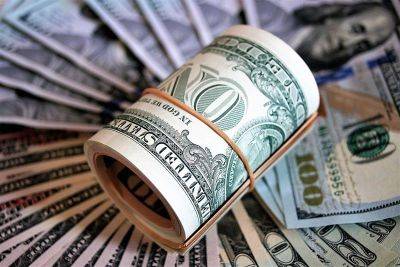'Not the end of the world', says data scientist on the big issues
PARIS, France — Humanity has made great strides in recent decades: air is cleaner; poverty, deforestation and childhood mortality have fallen; gasoline cars -- and maybe coal -- are on the way out.
This optimistic take on the state of affairs may be startling to some, but not Hannah Ritchie, a Scottish data scientist whose first book lets the facts speak for themselves.
"We just are unaware of how bad the past was," Ritchie told AFP from Edinburgh.
"People are just unaware that at least half of kids died, that diseases were rife, that most people lived in poverty, that most of the world were hungry."
Her book, "Not the End of the World", presents an evidence-rich counterpoint to the view that everything is going in the wrong direction, and offers possible approaches to the burning challenges of our time.
That also means climate change, a problem that Ritchie -- who is lead researcher at the Our World in Data website based out of Oxford University -- is careful not to understate.
"If you skew too far in one direction, I don't actually think you're telling the true story. We need to be clear-eyed about the problem in front of us," she said.
"That's actually not useful -- to deny it, or downplay it, or not be serious about it. But at the same time, you also need to focus on solutions, so we actually drive progress forward."
Those solutions are not always obvious, Ritchie said, and focus can be misguided when it comes to choosing what personal action to take in aid of the planet.
Ritchie pointed to the tendency in rich countries to hype behaviours that have little real impact -- such as recycling or ensuring televisions are not left on stand-by mode -- while continuing to drive, fly and eat meat.
Assuming everything 'natural' is automatically good can also mask some inconvenient realities, she added.
Huddling around a campfire can produce a sense of closeness to nature, but burning wood belches out smoke harmful to humans and the planet.
"What looks sustainable is the natural cow in a green field eating grass. But actually, when you do the numbers on this, the meat substitute burger is vastly, vastly better on almost any environmental metric compared to the cows,"







